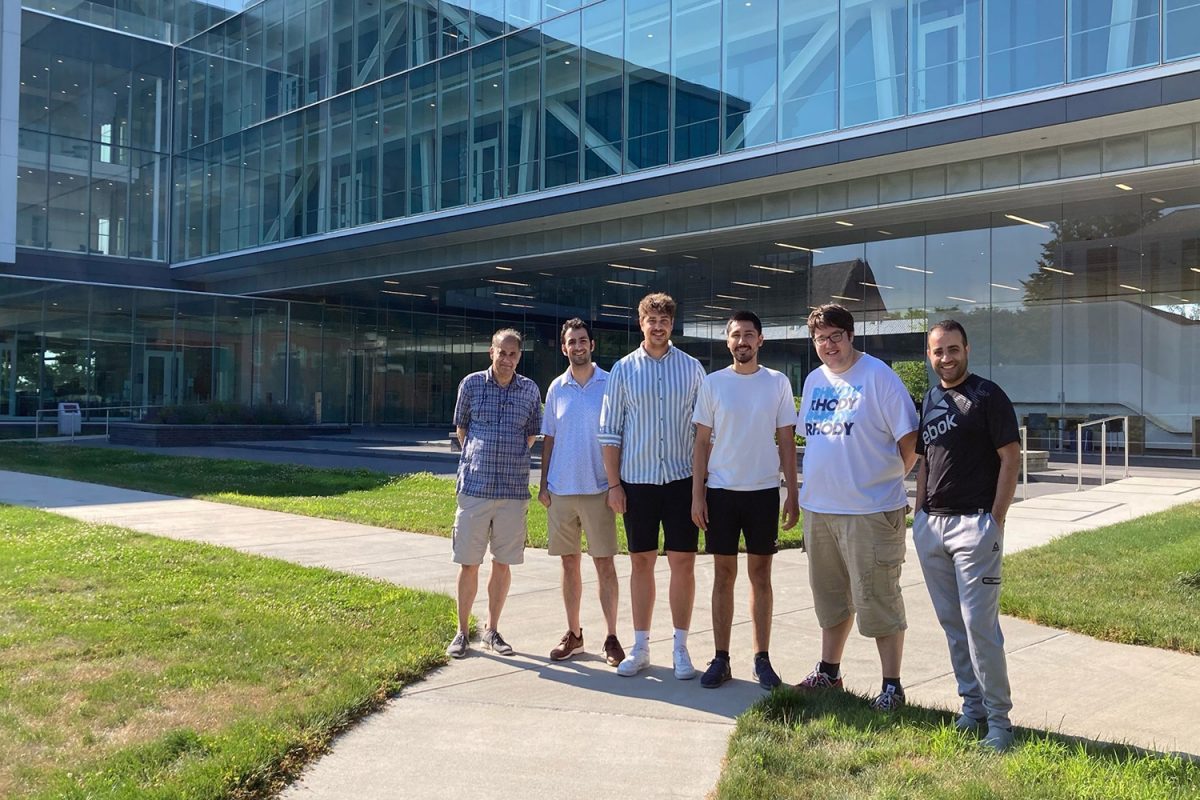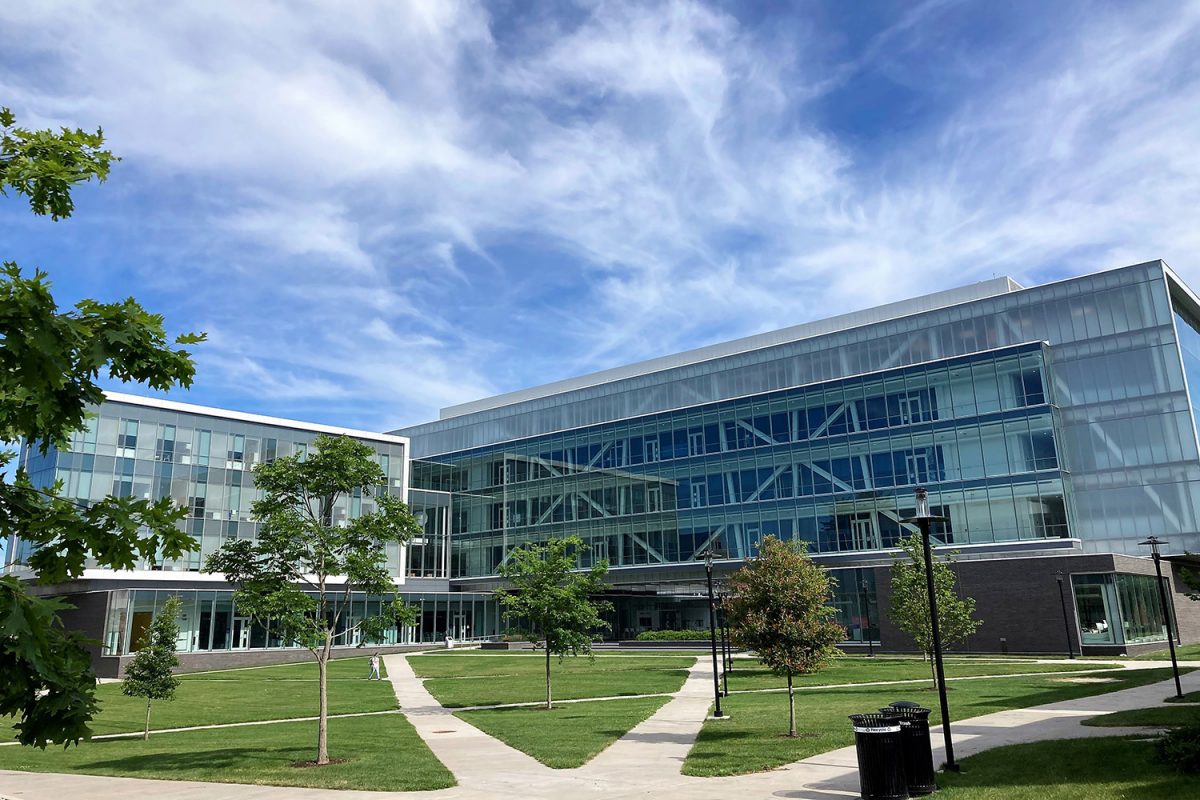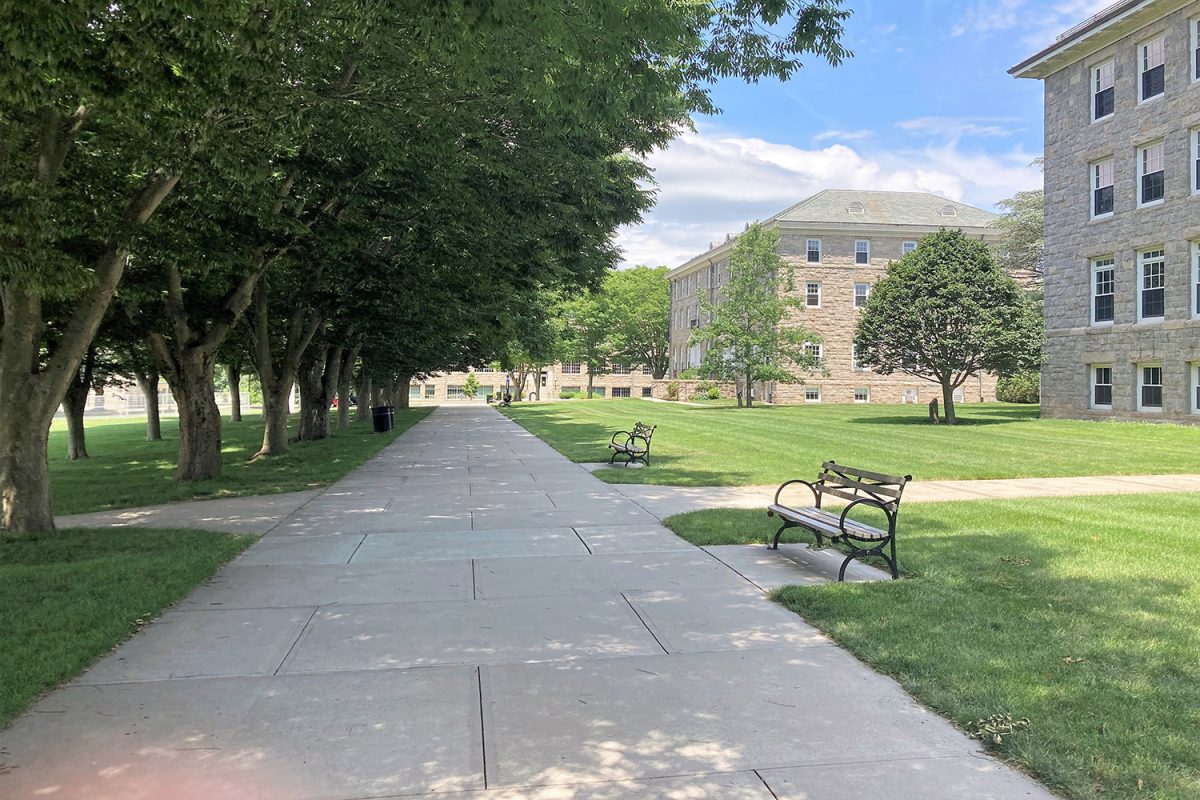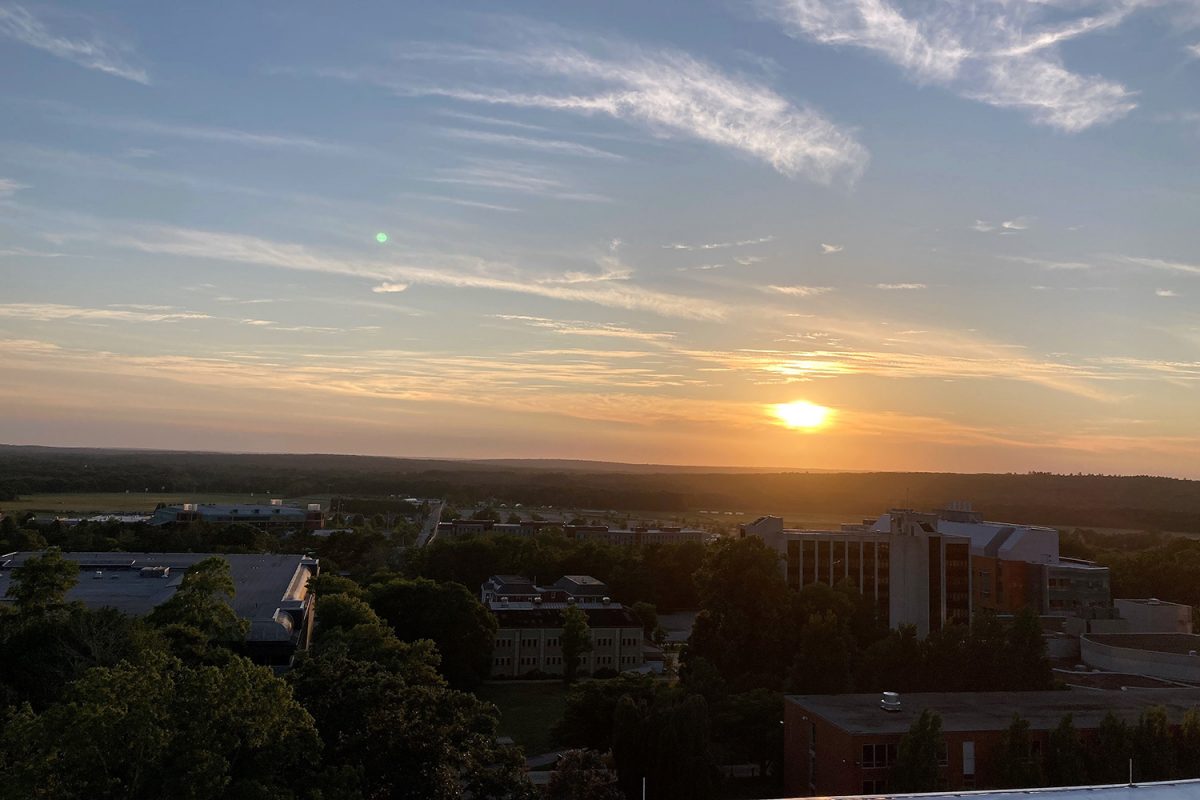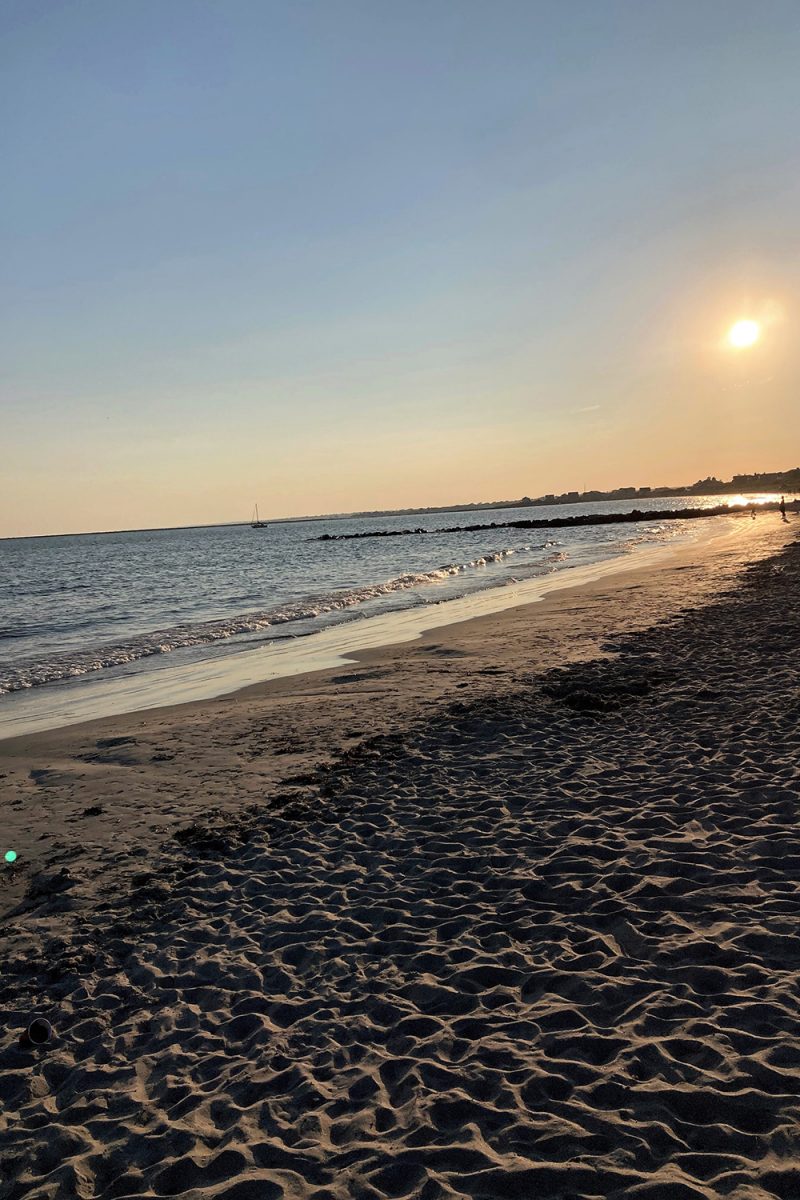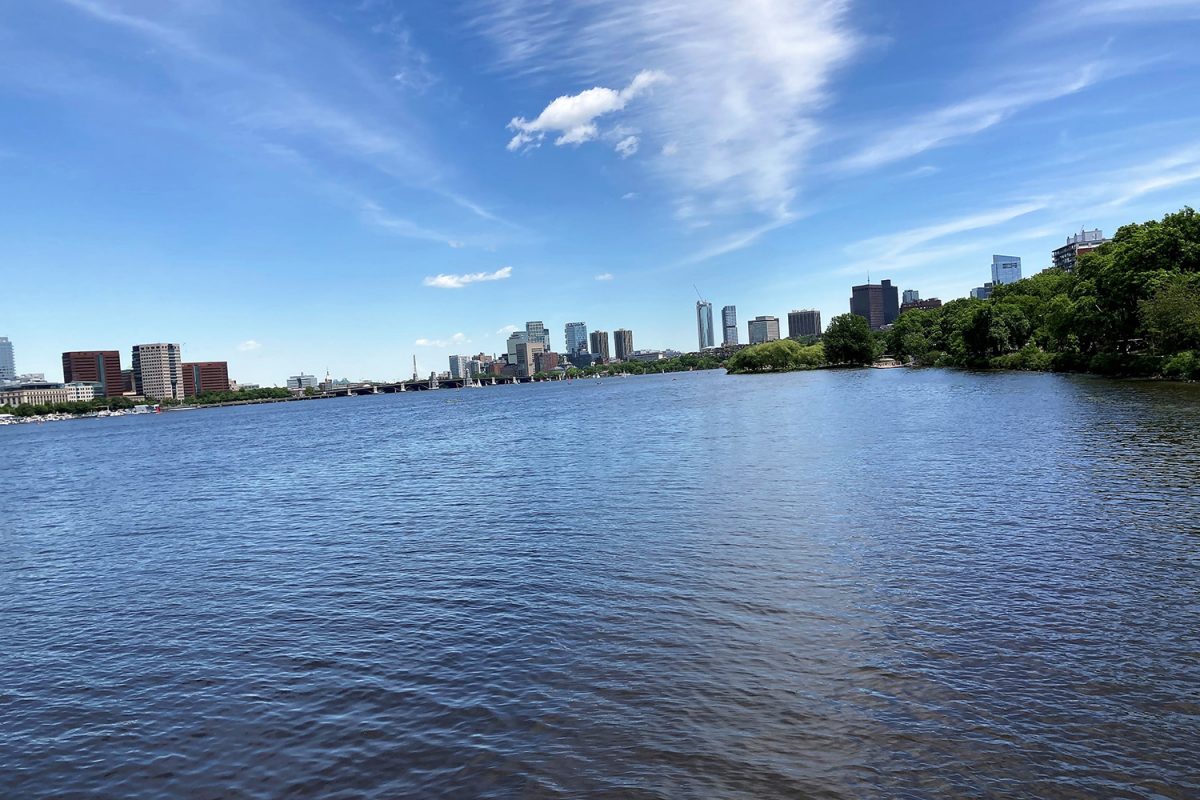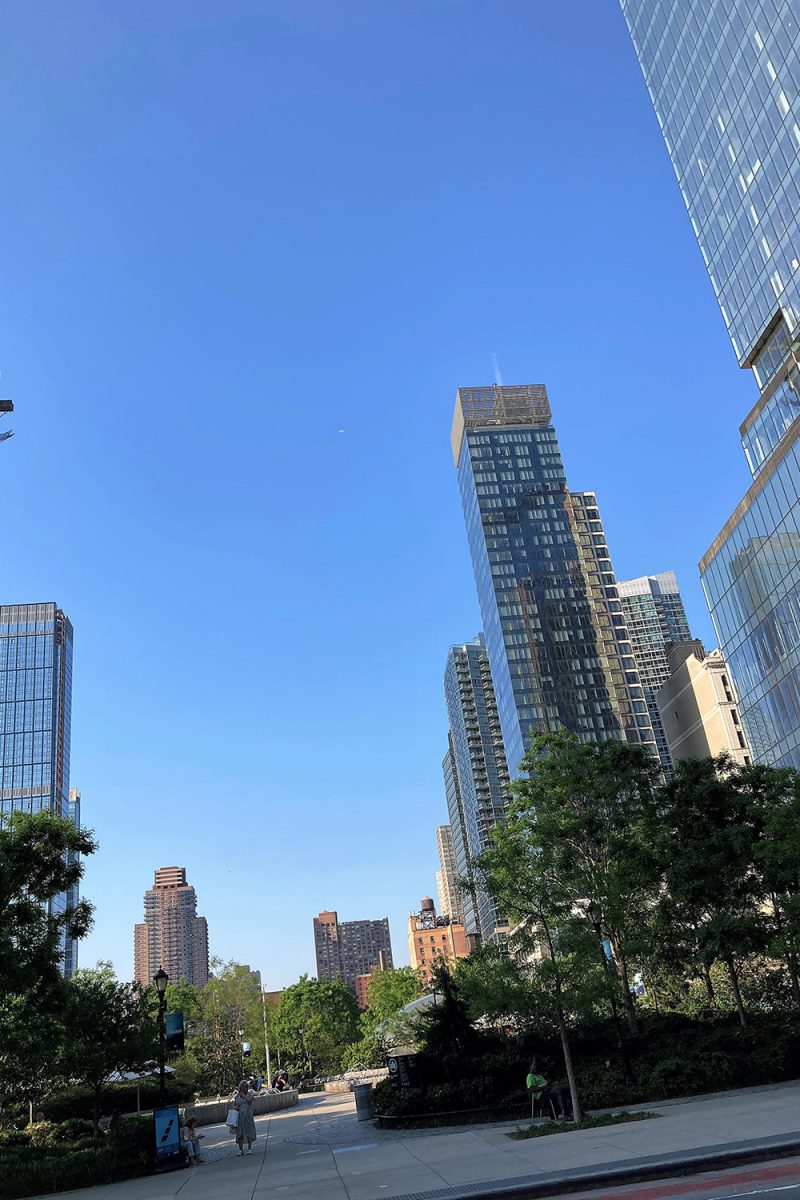Mail from … Rhode Island PhD Student Alexander Barke reports on his research stay in Rhode Island, USA
This is where I live at the moment:
I currently live in the northeast of the USA, in Kingston in the state of Rhode Island. Kingston is about an hour south of Boston and three hours northeast of New York.
This is what I do in Rhode Island:
As part of my research stay, I am currently working in the Department of Mechanical, Industrial and Systems Engineering at the University of Rhode Island (URI). Together with Prof. Dr. Manbir Sodhi, I am researching topics in the area of Operations Research and quantitative life cycle-oriented sustainability assessment. Our goal is the development of assessment methods and metrics for novel technologies that can be used in early phases of technology development to identify beneficial configurations regarding technological properties and environmental, economic, and social sustainability aspects.
The developed assessment methods and metrics are part of my work in the Cluster of Excellence SE2A – Sustainable and Energy-Efficient Aviation and constitute an important part of my dissertation.
The total duration of my stay is:
My research stay at the URI will last three and a half months, and it is funded by the Deutsche Forschungsgemeinschaft (DFG, German Research Foundation) as part of the “Research stays abroad” -program of the Cluster of Excellence SE2
This is why I decided to go abroad:
Science fundamentally lives through the exchange, and the discussion of research topics outside of the own university often opens up a new point of view. Especially at international conferences and meetings, a multitude of new incentives for your research through the diversity of the participants can be generated. Therefore, it quickly became clear to me that I wanted to complete a longer research stay abroad if the opportunity for it arose.
Within SE2A, there are diverse programs for PhD students, and, fortunately, one of them is the “Research stays abroad”-program, which funds research stays of the PhD students in this Cluster of Excellence. I was very interested in this program, and after our head of the institute, Prof. Dr. Thomas Spengler, explicitly spoke to me about it, it was clear that I would do a research stay abroad. Based on established competencies and longstanding cooperation, we decided that this exchange should ideally happen with Prof. Dr. Manbir Sodhi at the URI. Prof. Sodhi immediately agreed to this and warmly welcomed me to Rhode Island.
This research stay is also an opportunity to broaden my horizons. On the one hand, you get to know many new people, and it is always a nice experience to spend a longer time living abroad. On the other hand, I will stay at TU Braunschweig even after my (hopefully successful) dissertation. Thus impressions of other universities are always helpful to reflect upon your work better and, therefore, to develop further.
Local Life
This is how I live in Rhode Island:
Since Rhode Island is a popular vacation destination in the summer, I had to split my stay over two accommodations. For the first month, I lived with two other guest researchers from Europe as well as two staff members of URI in a house about ten minutes from campus. Since mid-May, I live directly on campus in the house of the “International Engineering Program”, which, regarding the furnishing, is comparable to German student accommodation. My room is only nine square meters in size, but as I mostly spend time there sleeping, it is entirely sufficient for the time of my stay.
What makes working in Rhode Island different from working in Germany?
My research takes place exclusively on a computer, which is why with a well-furnished workspace, which I have at the URI, it does not differ much from Germany at first glance.
However, the structure of the university is entirely different. In Germany, the institutes and departments constitute professors, postdocs, as well as academic staff. You often discuss insights or problems with colleagues, and through project work and the support of lectures and seminars, you learn new things from many different areas, which helps your research.
By contrast, the professors here are rather left on their own. They usually have just a few PhD students and work primarily with their Master’s students (“graduate students”) on content-related topics. Furthermore, the doctorate in the USA mainly consists of studying, including having to visit lectures. Accordingly, the PhD students here are rather focussed on their dissertation topics, and content-related discussions are predominantly held with the professor. The professors are easy to contact and allot a lot of time even if a need for discussion arises on short notice.
Particularly typical for the county of my study abroad is:
Aside from lots of sun, warm weather, beaches, and the sea, it is especially the friendliness and helpfulness of the local people. You can make friends very quickly and get integrated into different groups. This makes the arrival much easier. I cannot even recount how often I have been invited to sports events, beach trips, city trips, bar evenings, etc., in the past months.
This is what I learned here during the first three days:
The “turn right on red”-rule, where a car must stop at a red light but can turn right as far as traffic allows. When there are other cars at the traffic light behind you, they quickly make this clear through loud honking. I have to quickly give up this rule when I am back in Germany.
The biggest challenge during my stay so far:
Big challenges during my stay have not come up yet. Here and there are some smaller peculiarities you have to look out for, such as repeated (to German understanding pushy) inquiries when forms and documents are urgently needed, but that is something you quickly find out.
The biggest challenge of the entire research stay was the search for accommodation before the departure to the USA. I can only recommend that everyone take care of this early on, as available flats and rooms outside of the academic year (September to May) are rare and tend to cost two to three times the rent compared to Germany.
This is what I will take home with me from here:
Most notable are the wonderful memories, new incentives for my work and research, as well as many new friendships and acquaintances. Furthermore, I will probably also take along a material souvenir in the form of a hoodie of URI, which will remind me of the time here.
Good to know
This is a local dish you definitely have to try:
The URI is located south of Rhode Island, near the Atlantic Ocean. Accordingly, you can find many restaurants and diners in which seafood is offered. A particular specialty is a lobster, which is served freshly caught.
Which blunder should you avoid in Rhode Island?
To mix up Rhode Island with Long Island. This supposedly happens rather often when you are traveling around other states of the USA and then tells people where you live.
This is a tip I give to other students who want to go abroad:
First off, I want to encourage everyone that if an opportunity for a stay abroad presents itself, you should take it and do the exchange. It is an exciting and educational experience and gives you many personal and professional development advantages.
Regarding the organizational side, it helps a lot to organize important things such as accommodation and transport early on. Nevertheless, it would help if you stay flexible and do not plan the stay too strictly. My time in Rhode Island has shown me that there will always be unforeseen events that force you to re-plan, but at the same time, new opportunities arise.
One last thing I would like to say:
At this point, I would like to thank Prof. Dr. Thomas Spengler, my head of the institute at TU Braunschweig, for the continual support of the execution of my research stay and his very good supervision. I am very much looking forward to continuing working and researching fascinating topics together in the coming years.
Moreover, I would like to thank Prof. Dr. Manbir Sodhi, who welcomed me with open arms at the URI and has continually supported my research execution with important advice. The many thrilling discussions and conversations even outside of work and research were great fun to me and have helped my personal development.
Furthermore, I would like to thank Dr. Christian Thies, who, as my group leader, is always an important point of contact and has provided me with many tips for my time in Rhode Island, as he had already completed a longer stay at the URI.
Finally, I want to thank the people responsible for the Cluster of Excellence SE2A, who have made this research stay possible for me.

